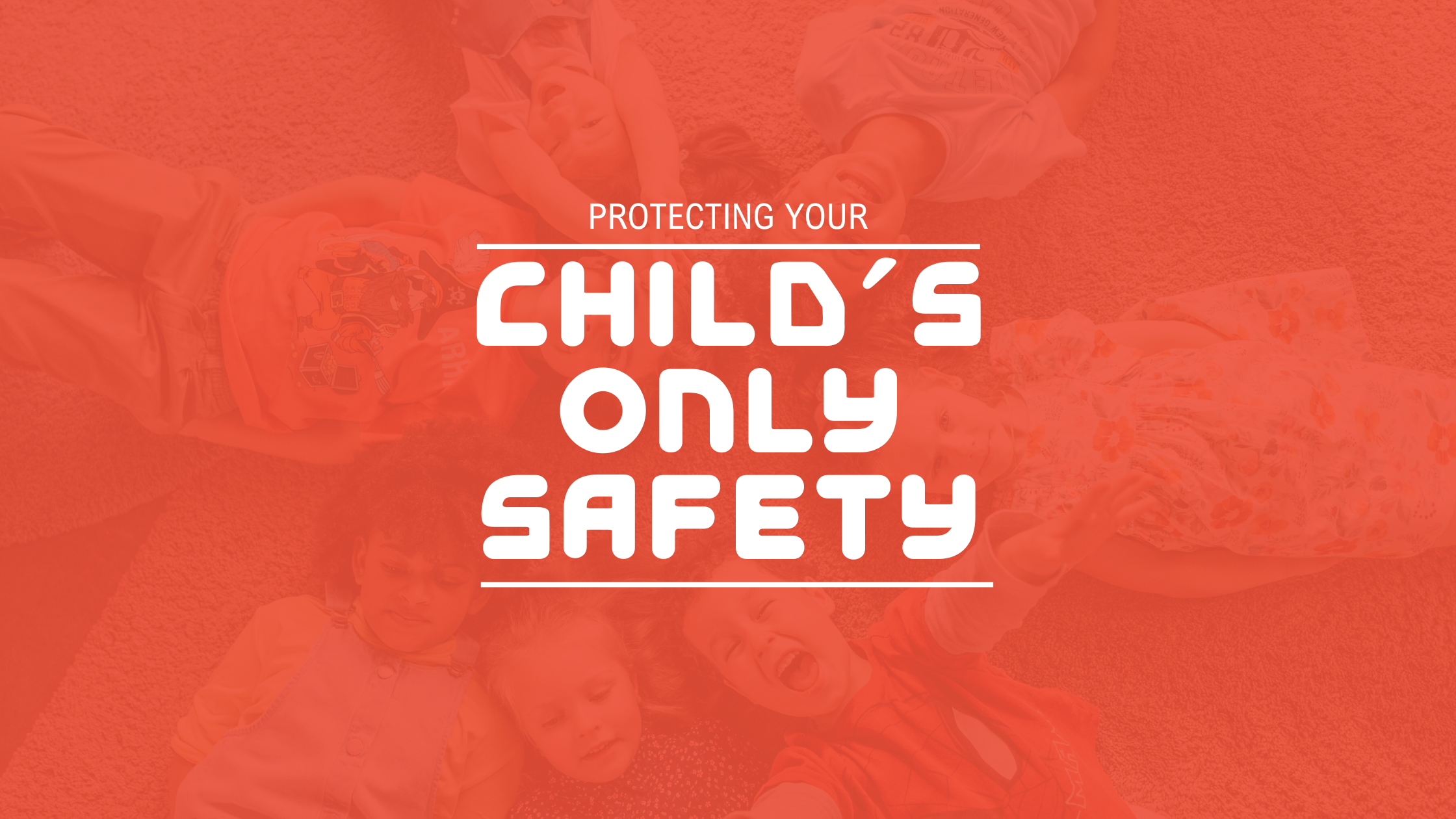Welcome to “The Parent’s Playbook: Protecting Your Child Online Safety” – your ultimate guide to navigating the digital landscape and ensuring your child’s well-being in the online world.
As parents, we understand the growing concerns and challenges that come with raising children in 2023. With the internet becoming a crucial part of their lives, it’s crucial to equip ourselves with the knowledge and tools to safeguard their online experiences.

In this blog, Konnect My Home will delve into practical strategies, expert insights, and valuable resources that will empower you to be a confident guardian of your child’s digital well-being.
From social media platforms to online gaming and cyberbullying, we’ll tackle the most pressing issues head-on and provide you with actionable steps to protect your child from online threats.
So, let’s dive in and discover the playbook to ensure our children’s online safety while nurturing their digital literacy and well-being.
2023 is All about Your Child Online Safety
In 1996, half the kids had home computers, and we were all like, “Whoa, we’re living in the future!” Fast forward to 2015, and 80% of kids were plugged into the digital revolution. Parents were like, “Hold up, we need to protect our little tech-savvy warriors!”
So, parents started having “the talk” with their kids. No, not the birds and bees talk (we’ll get to that later). We’re talking about internet safety.
Turns out, more than half of parents had multiple discussions with their kids about the wild world of cyberspace. They were all like, “Look, kid, there are some sneaky online predators out there, and we gotta be smart about it.”
Research by the PEW Research Center indicated that over 70% of parents were worried that their kids were glued to screens all day. I mean, we get it. We love a good binge-watch as much as the next person, but there’s a limit, kiddos!
As the kids grew up, parents got more proactive about internet safety. Nearly 90% of them had at least one conversation with their preteens and teens about being smart online.
They were like, “Listen up, my future social media influencers, let’s talk about privacy settings and think twice before posting that embarrassing selfie.”
But here’s the plot twist: when it comes to other safety topics like sex, fire, and driving, parents seem to have a case of selective importance.
Only 37% of them had multiple talks about sexual safety with their 12+ year-olds. And get this—30% hadn’t even broached the subject!
It’s like they were saying, “We’ll let the internet safety lecture do the heavy lifting, but as for the birds and bees, we’ll just wing it.”
So, yeah, parents are all for internet safety talks in 2023, but it seems like they need a little reminder to cover the other bases too.
But all things aside, let’s give you some strategies on how to handle your child online safety.
Stuff you as a Parent Can Do for Your Child Online Safety
1. Set Clear Rules and Boundaries
Let’s lay down some ground rules in this wild online jungle! Create a family media plan that puts those guidelines in place. How much screen time is acceptable? Which websites and apps are off-limits?
And don’t forget about the importance of keeping personal information under lock and key. Don’t worry; you can regularly review and update these rules as your kid becomes a tech-savvy ninja.
2. Teach Digital Literacy Skills
Time to arm your little one with some digital street smarts! Show them the ropes of privacy settings, the power of strong passwords, and the sneaky risks of oversharing personal info.
And let’s not forget about critical thinking skills—how to sniff out those online scams, evaluate trustworthy sources, and weigh the consequences of their virtual actions. Watch out, online world; we’re raising some savvy netizens.
3. Utilize Parental Control Tools and Filtering Software
Sometimes all we require is a helping hand to keep those digital monsters at bay. That’s where parental control tools and filtering software come to the rescue.
They’re like the virtual bouncers that monitor your kid’s online activities, block out inappropriate content, and set limits on the shady corners of the web. But hey, remember to balance it with open communication and guidance. It’s all about finding that sweet spot.
4. Foster Trust and Open Communication
Hey, we’re the cool parents who know how to listen! Create a nice safe space where your child can spill the beans about their online escapades without fearing judgment or confiscation of devices.
Be the trusted ally they turn to when they face online challenges. So put on your listening skills, give those warm hugs, and guide them through the digital twists and turns.
5. Monitor and Supervise Online Activities
Don’t worry, Sherlock Holmes, we’ve got our magnifying glasses ready. Regularly keep tabs on your kid’s online adventures, especially if they’re young or just getting their feet wet in the digital world.
Put those computers and gadgets in communal areas, where you can casually snoop on their online interactions. It’s all in the name of safety, my dear Watson!
6. Teach Responsible Social Media Usage
Time to show those social media platforms who’s the boss. Educate your kiddo about responsible social media behavior.
From privacy settings to the potential pitfalls of oversharing, let’s make sure they know the ins and outs of the digital playground. Teach them to think twice about that embarrassing photo before hitting that “post” button. Make sure that you’re raising a savvy social media rock star.
7. Educate About Online Risks and Reporting Procedures
Be the superhero guiding your child through the hazards of the online universe. Teach them about cyberbullying, online predators, scams, and all the creepy crawlies that lurk in the darkest corners of the web.
Equip them with the knowledge to identify and respond to these risks, and make sure they know the importance of reporting incidents to you or a trusted adult. You can build an army of online defenders.
8. Be a Positive Digital Role Model
Monkey see, monkey do! So let’s be the digital role models our kids need. Practice healthy digital habits yourself, and show them how to strike that balance between online and offline experiences.
Demonstrate respectful online interactions and teach them that life isn’t just about screens. Let’s prioritize their well-being and show them that there’s a big, beautiful world beyond those pixels.
9. Stay Connected with Other Parents
It’s time to form a digital superhero alliance. Connect with other parents who are tackling the same online challenges. Attend workshops, join parent-teacher associations, or even find online communities dedicated to discussing the ins and outs of digital parenting.
Together, you can swap stories, share concerns, and arm yourselves with strategies to conquer the ever-evolving digital world.
Remember, we can’t guarantee foolproof online safety, but by implementing these strategies, keeping the lines of communication open, and staying sharp, we can navigate this digital jungle and protect our little ones. Let’s show the online world that we mean business!
Konnect My Home – Your Solution to Internet Problems
Had enough of the internet going on strike every time you need it most? We feel your pain, & that’s why we’ve got your back at Konnect My Home. We’re not just another faceless internet service provider – we’re your partners in crime, committed to making your online life a breeze.
And here’s the cherry on top: we’re all about your child online safety. We’ve got your back with top-notch security features, parental controls, and expert advice on how to navigate the web without stepping on any virtual landmines. So you can snooze off peacefully, knowing your loved ones are protected from the wild and wacky World Wide Web.
Don’t keep your internet dreams waiting – get started on a journey to seamless browsing and customer service that’ll make you feel like a VIP!
FAQs
Q: What are the signs that my child may be facing online dangers or cyberbullying?
A: It’s essential to stay vigilant and look out for signs that your toddler may be facing online dangers. Some signs include sudden changes in behavior, mood swings, withdrawal from social activities, secretive behavior around online activities, or a sudden drop in academic performance. Keep that line of communication open 24/7 with your child so they feel comfy sharing any concerns or incidents they may encounter.
Q: How can I teach my child about the importance of privacy online?
A: Teaching your child about online privacy starts with setting a good example yourself. Discuss the potential consequences of sharing personal information online and encourage them to think twice before disclosing sensitive details. Teach them to use privacy settings on social media platforms and emphasize the importance of being cautious when interacting with strangers online.
Q: What if my child comes across inappropriate content online?
A: It’s important to have a plan in place for such situations. Encourage your child to immediately exit the page or app and come to you or another trusted adult for help. Remind them that it’s not their fault and reassure them that they can always seek your support. Consider using content filtering software to reduce the chances of your child stumbling upon inappropriate content.
Q: How can I help my kid deal with cyberbullying?
A: If your child is experiencing cyberbullying, it’s crucial to provide emotional support and reassurance. Encourage them not to respond anything to the bullies and to save any evidence of the bullying, such as screenshots or messages. Report the incident to the relevant platform or school authorities, and consider involving law enforcement if the situation escalates. Encourage your child to engage in positive offline activities and seek help from a counselor or support group if needed.
Q: Should I limit my child’s screen time completely?
A: While it’s important to strike a balance between screen time and other activities, a complete ban on screen time may not be practical or beneficial. Instead, set reasonable limits and encourage your child to engage in various activities, both online and offline. Focus on quality screen time, such as educational content or engaging with friends and family in a positive way, rather than mindless scrolling.
Q: How can I stay updated on the latest online trends and risks?
A: Staying informed is essential in protecting your child online safety. Follow reputable online safety websites, subscribe to newsletters, and attend workshops or seminars on internet safety. Engage in discussions with other parents, teachers, or online communities dedicated to digital parenting. By actively seeking knowledge, you can better understand the evolving online landscape and guide your child accordingly and you can assure your child online safety if you are far from them.

